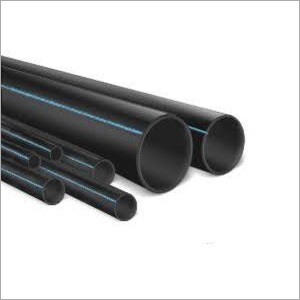Practical Overview to hdpe pipe fittings Midland TX and Their Uses
Recognizing the Secret Benefits of HDPE Pipe for Water and Wastewater Monitoring
The use of HDPE pipe in water and wastewater management offers numerous benefits that merit factor to consider. Its remarkable resilience and long lifespan make it a favored choice for numerous projects. In addition, the material's resistance to corrosion and chemical damage enhances its integrity in different settings. The benefits extend beyond just longevity and resistance. Texas hdpe pipe manufacturer. Discovering its cost-effectiveness and ecological impact exposes much more compelling reasons for its extensive fostering in modern-day facilities
Phenomenal Durability and Long Life

HDPE pipe attracts attention for its extraordinary longevity and longevity, making it a recommended choice in water management systems. Constructed from high-density polyethylene, these pipes can stand up to considerable stress and tension, making certain trustworthy efficiency over time. Their robust nature enables them to sustain extreme environmental conditions, consisting of temperature level changes and soil movements, which can create other materials to fail.
The life expectancy of HDPE pipes usually surpasses 50 years, supplying a cost-efficient solution for districts and markets alike. Additionally, the material's lightweight buildings streamline installment, lowering labor costs and durations. This sturdiness lessens the need for constant repair work or replacements, better enhancing its financial appeal.
In water monitoring applications, the reliability of HDPE pipelines indicates less disruptions and enhanced service continuity, making them indispensable to sustainable framework development. The mix of resilience and longevity solidifies HDPE's function as a cornerstone in reliable water monitoring remedies.

Resistance to Deterioration and Chemical Damages
While lots of materials catch deterioration and chemical damage in time, HDPE pipelines show amazing resistance, making them optimal for various water monitoring applications. This durability comes from the molecular structure of high-density polyethylene, which is inherently non-reactive and does not rust like steels or deteriorate from exposure to rough chemicals. Because of this, HDPE is extremely reliable in settings with hostile compounds, such as wastewater systems that may have acids, bases, and natural solvents.
In addition, HDPE pipes can withstand ecological aspects such as dirt level of acidity and saline conditions, better enhancing their suitability for diverse applications (Midland TX HDPE Pipe Fittings in Stock). Their ability to maintain architectural stability in time decreases the danger of leakages and failings, which is crucial in making certain the safety and security and integrity of water circulation and wastewater administration systems. Consequently, the resistance to corrosion and chemical damages substantially contributes to the total effectiveness and longevity of HDPE piping remedies
Cost-Effectiveness and Economic Advantages
When considering the monetary implications of water administration systems, the cost-effectiveness of HDPE pipes becomes apparent. These pipelines supply lower installment and maintenance prices contrasted to conventional materials like steel or concrete. Their lightweight nature streamlines transport and installation, leading to lowered labor expenses. Additionally, HDPE pipes exhibit a lengthy lifespan, often exceeding half a century, which converts to fewer replacements and long-term cost savings.
Additionally, the resistance of HDPE to deterioration and chemical damage lessens the requirement for expensive fixings and substitutes. The pipes also support effective water circulation, lowering energy expenses related to pumping systems. By minimizing leaks and water loss, HDPE pipelines add to significant economic benefits for towns and sectors alike. On the whole, the preliminary investment in HDPE piping can produce substantial economic returns over the life-span of the water monitoring system, making it a prudent selection for lasting infrastructure advancement.
Environmental Sustainability and Reduced Effect

Versatility and Adaptability in Setup
Due to their special buildings, HDPE pipelines provide remarkable flexibility and flexibility in installation, making them appropriate for a wide variety of applications. Their light-weight nature enables simpler handling and transport, minimizing labor expenses and installation time. HDPE pipes can be bent and shaped to fit different terrains and job requirements, which is specifically useful in challenging environments.
Furthermore, their resistance to corrosion and chemical damage enables installation in varied settings without the requirement for specialized safety coatings. The capacity to fuse joints creates a continuous, leak-free system, enhancing the general honesty and dependability of the installation. HDPE's versatility also fits ground movement, lowering the risk of damage in locations prone to shifting soil. Overall, these characteristics make HDPE pipes not just functional yet also a recommended selection for water and wastewater administration systems.
Regularly Asked Questions
Just How Does HDPE Pipe Compare to PVC in Water Management Applications?
HDPE pipeline uses exceptional adaptability, resistance to rust, and resilience contrasted to PVC. Its lighter weight helps with easier setup, while its long lifespan minimizes substitute expenses, making HDPE a preferred choice in water administration applications.
What Is the Life-span of HDPE Piping Under Normal Conditions?
Under common conditions, HDPE pipelines can have a life expectancy ranging from 50 to 100 years. Their longevity and resistance to corrosion add to their long-lasting efficiency in various applications, making them a dependable choice for infrastructure.
Are HDPE Piping Recyclable After Their Life Span?
Yes, HDPE pipes are recyclable after their life span. Midland TX HDPE Pipe Fittings in Stock. They can be refined and repurposed right into brand-new products, considerably lowering ecological effect and promoting sustainability within the market, making them a green selection for piping services
What Is the Setup Process for HDPE Pipeline?
The installment procedure for HDPE pipes entails website preparation, trenching, pipe fusion or mechanical signing up with, backfilling, and pressure testing. Correct strategies guarantee a sturdy and efficient system for delivering water and wastewater successfully.
Can HDPE Water Lines Be Made Use Of for Both Safe And Clean and Non-Potable Water Systems?
Yes, HDPE pipes can be utilized for both drinkable and non-potable water systems. Their flexibility, durability, and resistance to corrosion make them suitable for various applications, making certain safe and reliable transportation of water in different contexts.